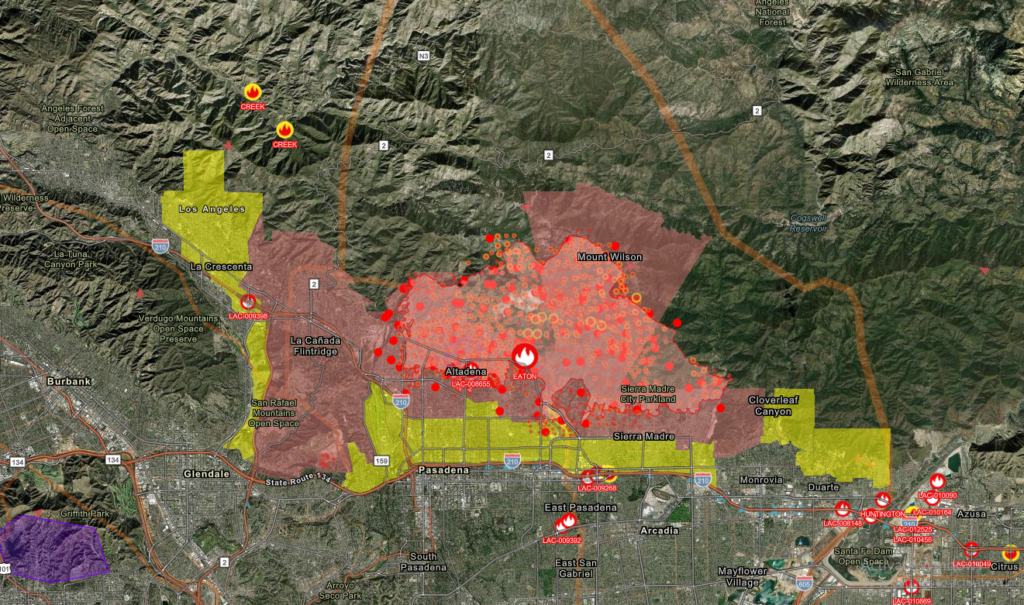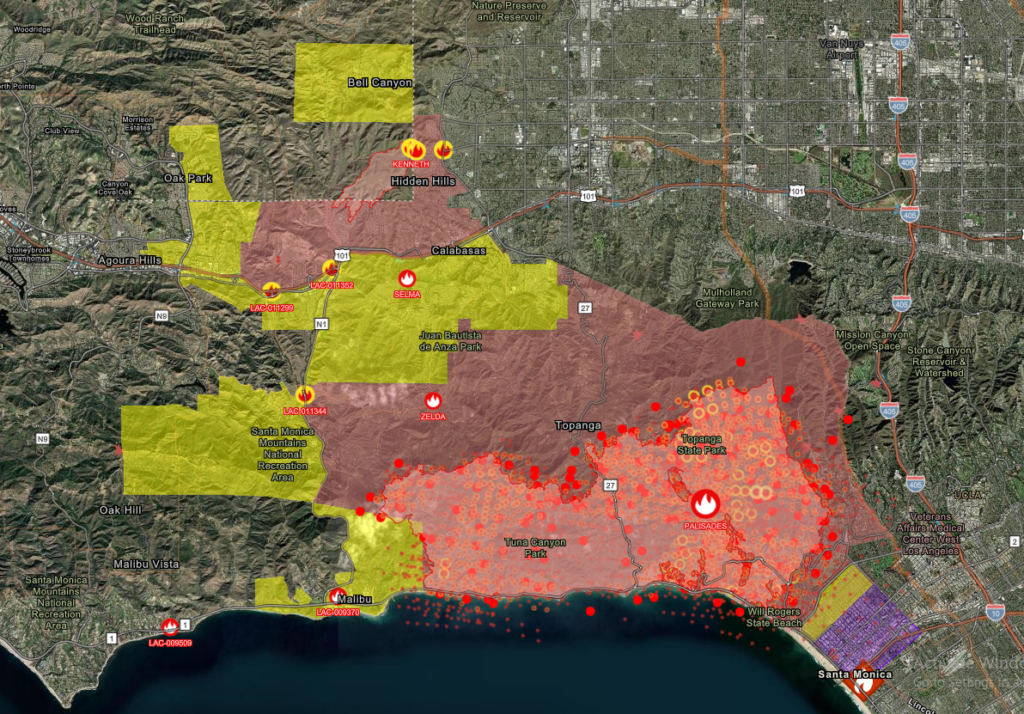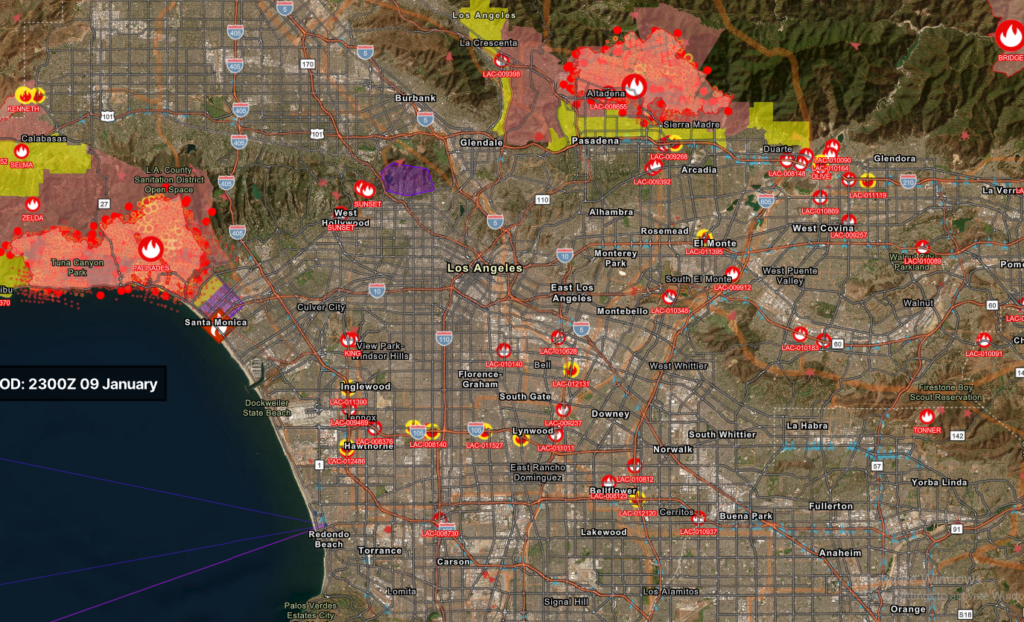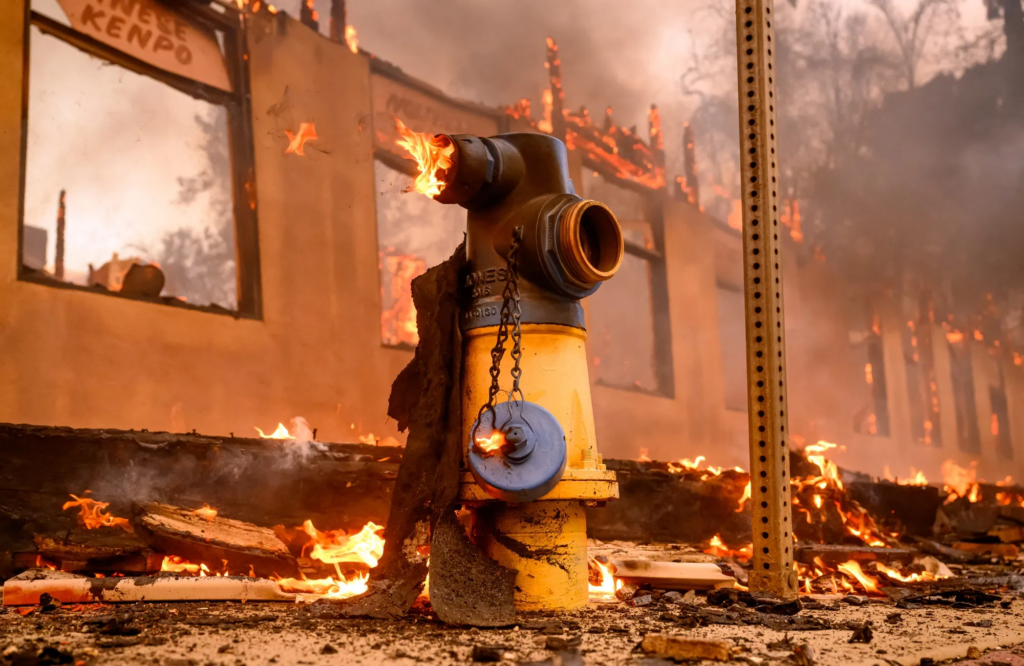A City on Edge
Los Angeles is reeling from a series of devastating wildfires that have scorched communities and put lives at risk. Amid the chaos, a shocking discovery has added fuel to the fire—hundreds of fire hydrants stolen for scrap metal, leaving firefighters scrambling to access water.
The thefts highlight a growing issue in Los Angeles: crime and crumbling infrastructure are threatening the city’s ability to maintain basic public safety. The situation raises questions about governance, accountability, and the future of emergency response systems in a city that continues to battle multiple crises.

S2 maps
The Impact of Stolen Hydrants
The stolen hydrants didn’t just inconvenience firefighters; they endangered lives and property. Without hydrants, crews faced delays in battling flames, potentially worsening the spread of fires. Experts believe the thieves targeted hydrants for the value of their metal, exploiting gaps in security and oversight.
“These thefts are a stark reminder of how crime has spiraled out of control,” said Los Angeles District Attorney Nathan Hochman. “Thieves act with impunity, risking public safety for small financial gains.”
Hochman, who ran for office on a platform of law-and-order reforms, warned that lenient policies and a lack of enforcement have emboldened criminals. His comments reflect growing frustration among residents who feel their leaders are failing to prioritize safety.

A Mayor Under Fire
Los Angeles Mayor Karen Bass has faced mounting criticism for her response—or lack thereof—to the crisis. Days before leaving for a taxpayer-funded trip to Africa, Bass cut $17.6 million from the city’s fire department budget. Critics say this decision weakened the department’s ability to respond effectively to the current emergency.
Adding to the controversy, Bass ignored direct warnings from the National Weather Service (NWS) about extreme fire weather conditions. In a statement shared on social media, Bass acknowledged the potential danger but left the city on an official trip to Ghana as the risk intensified.
Sky News reporters confronted Bass upon her return, asking whether she regretted the budget cuts or her absence during the crisis. The mayor declined to comment, avoiding eye contact as she exited the airport. Her silence has further angered residents and fueled calls for accountability.

Warnings Ignored?
The NWS had issued clear warnings about the impending danger. Days before the fires began, the bureau alerted local officials to destructive windstorms that could exacerbate fire risks. Bass shared one such warning on social media, urging residents to “stay safe.”
Critics argue that the mayor’s decision to travel abroad despite the warnings shows poor judgment. Some residents feel betrayed, believing their leaders failed to prioritize their safety during a critical time.

Budget Cuts Draw Scrutiny
The $17.6 million reduction in the fire department’s budget has become a focal point of the backlash against Bass. Opponents claim the cuts undermined the department’s preparedness and stretched resources thin.
The timing of the cuts couldn’t have been worse. Firefighters already face challenges with aging equipment, staff shortages, and an increasing number of wildfires. The stolen hydrants added another layer of complexity to an already dire situation.
The Bigger Picture: A City in Crisis
The hydrant thefts and budget cuts are symptomatic of broader issues in Los Angeles. Rising crime, homelessness, and infrastructure failures have created a sense of instability among residents. Critics say the city’s leadership has failed to address these challenges effectively, leading to a breakdown in public trust.
The hydrant thefts reflect a troubling trend of opportunistic crime in Los Angeles. Criminals exploit weak enforcement and minimal consequences, leaving communities vulnerable. Residents report feeling unsafe and ignored by officials who seem out of touch with their needs.
Community Response
As the fires rage on, community members have stepped up to fill the gaps left by city leadership. Volunteers have organized supply drives, donated equipment, and offered support to displaced families. Firefighters have worked tirelessly despite limited resources, earning widespread praise for their bravery and dedication.
Local activists have called for an independent investigation into the stolen hydrants, the fire department’s budget cuts, and the city’s overall emergency preparedness. Many believe these issues need immediate attention to prevent future crises.

What’s Next for Los Angeles?
The city faces a long road to recovery. Replacing the stolen hydrants and repairing fire damage will require significant resources. Restoring public trust will take even longer.
Many residents are demanding answers from their leaders. They want to know why the city wasn’t better prepared and why critical resources were cut at a time of growing risk. Mayor Bass, in particular, faces mounting pressure to address these concerns and prove her commitment to public safety.
A Call for Change: Is it too late?
The crisis in Los Angeles underscores the urgent need for stronger leadership, better infrastructure, and more effective crime prevention measures. The stolen hydrants and budget cuts are more than isolated incidents—they are symbols of deeper systemic issues that demand attention.
As the fires slowly come under control, the city must confront its failures and work toward solutions that prioritize the safety and well-being of its residents. Only then can Los Angeles hope to emerge stronger and more resilient in the face of future challenges.
Our Visitor






 Users Today : 11
Users Today : 11


